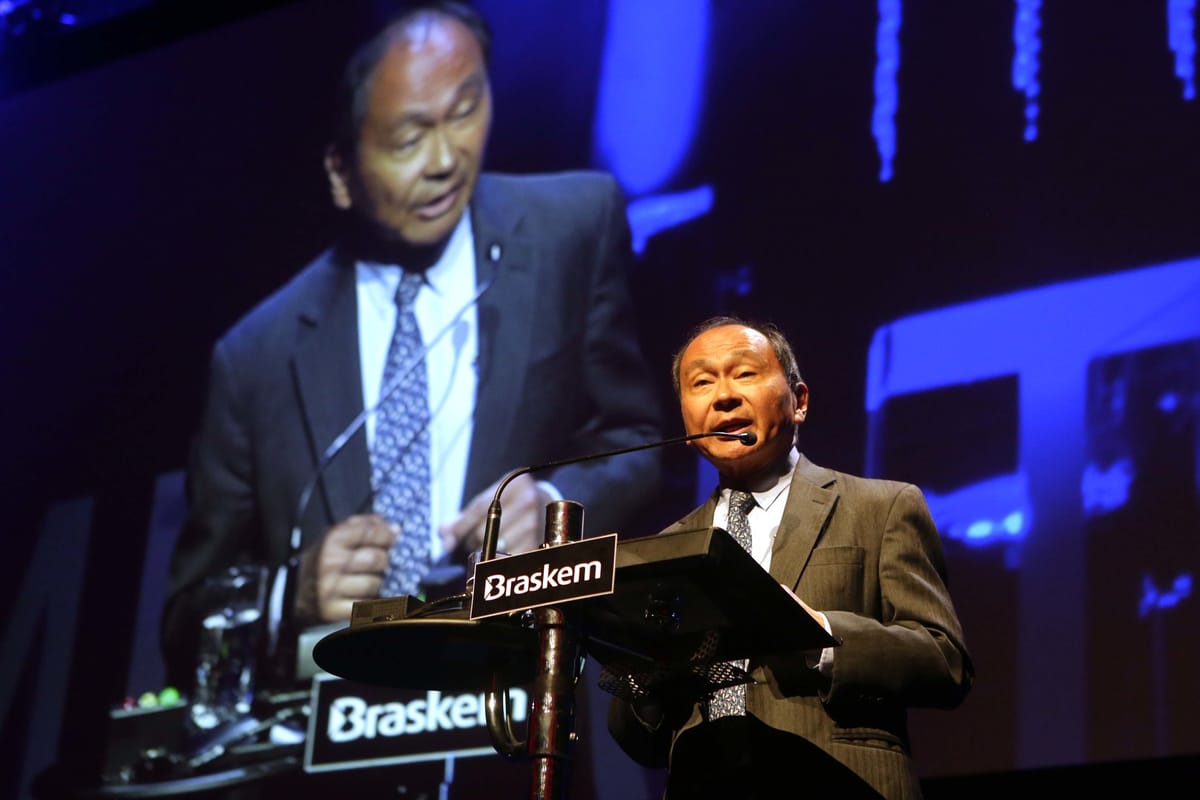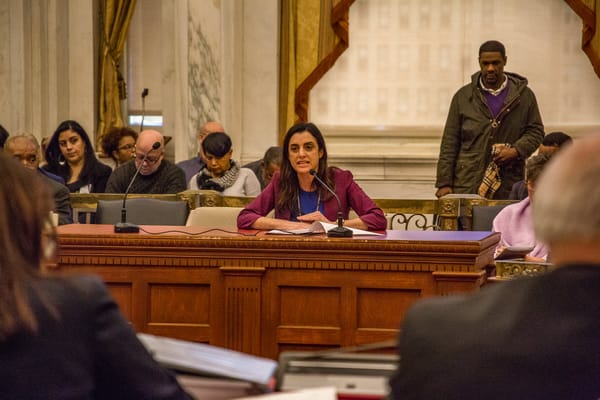Frankly Illiberal, Fukuyama

The esteemed political scientist and founding editor of American Purpose, Francis Fukuyama, has taken aim at woke liberalism, which he defines as “[interpreting inequality not as] between broad social classes like bourgeois and proletariat, but rather as the marginalization of narrower identity groups based on race, ethnicity, gender, or sexual orientation by a dominant power structure.” Fukuyama covers no new ground here, merely rehashing tired antiwoke arguments similar to those of Yascha Mounk, The Economist, Jonathan Haidt, and countless others.
Woke activism allegedly induces a rightwing reaction, exacerbating rightwing illiberalism. To the extent this happens, Fukuyama—like other reactionary centrists—ignores the obverse dynamic, that rightwing reactionaries are, true to their name, reacting to real and perceived gains by women, racial minorities, and queers. We might see woke activism as collective self-defense against the rightwing backlash against social progress.
Consider the reaction against the presidency of Barack Obama as an example. The Tea Party and ultimately Trump were backlashes against Obama, with the former characterizing Obama as a radical anti-colonial socialist and the latter prosecuting a baseless campaign of lies about Obama’s birth and eligibility for office. That Obama was in fact a moderate neoliberal had no bearing on these malicious interpretations. The reality of a Black man in the most powerful position in the world was enough to cause a rightwing backlash that continues to threaten our democracy today.
"Identity politics are perfectly compatible with classical liberalism if identity is seen as a mobilizational tool to demand inclusion in a broader liberal order. But it quickly evolved into an illiberal form where narrow identities were seen as essential categories, and society was understood to be a pluralism of ascriptive groups rather than a pluralism of individuals."
This is all in Fukuyama’s imagination, though it’s understandable considering how an entire ecosystem of academics and journalists thrives on writing and citing books and conducting seminar circuits asserting that the woke believe identity groups are essentialist and prior to the individual. In reality, approximately all woke liberals engage in identity politics precisely in order to secure inclusion in a broader liberal order. They may, however, balk at the word “liberal” because they associate it with people who believe the rights and interests of women and minorities are a threat to liberalism. It is a peculiar kind of inclusive liberalism that relentlessly alienates members of any group that seeks to defend its dignity and interests.
Fukuyama gets specific about what groups and policies he finds problematic: “Progressive politics doubled down on DEI initiatives, LGBTQ advocacy, transgenderism, and most recently pro-Palestinian advocacy.” These rather diverse and separable causes are all casually dismissed as illiberal without argument.
There is no shortage of things to criticize the DEI industrial complex for—and plenty of these criticisms come from progressives and racial justice advocates!—but are attempts to increase diversity, equity, and inclusion in schools and workplaces inherently illiberal?
LGBTQ advocacy—that is, advocating for the rights and interests of lesbians, gays, bisexuals, trans people, and queer folks generally—is also illiberal by Fukuyama’s reckoning. Is it a threat to liberalism to advocate for this group of tens of millions of people? Or is it just that this group is too “narrow,” unlike capital and labor? “Transgenderism,” written this way, and his later comments about how classical liberals once “accepted the notion that we have human natures that are heavily shaped by our biological inheritances,” suggests that the entire category of trans people is illegitimate.
Fukuyama inspires little confidence in the ability of liberalism to adapt when he urges liberals to return to the views of sex and gender autonomy favored by the Founding generation.
"Today, we have a much more fluid view of human nature, and no longer seek to ground rights in a stable understanding of those natures. For example, there is a commonly accepted view within the public health and medical communities that there is no relationship between biological sex and gender identity, and that the latter is a completely voluntary construct. Whether one believes this assertion or not, it constitutes an extraordinary expansion of the realm of individual autonomy beyond what most classical liberals had ever believed. Moving back to a less expansive understanding of human autonomy is therefore a much harder task than simply shifting economic policies; it is a much heavier lift to tell modern people that they actually have less freedom than they thought they did."
Fukuyama cavalierly rejects what he imagines to be the medical and public health consensus on gender identity. Yet he botches what this consensus actually affirms. Gender may well be a social construct, with room for choice and agency, but it’s not as though there is radical freedom from biology. The relationship between sex and gender is multifaceted and variable because sex itself arises from multiple sets of biological traits. And the sex-gender relationship is at least somewhat malleable because it’s mediated by culture and enacted by individuals in all their unique peculiarities. Trans people resist conforming to their assigned gender roles against immense social pressure because doing so goes against their innate, unchosen self-conception. Fukuyama could easily incorporate these ideas into a liberal theory—and come into line with actual medical and scientific expertise—if he would just engage with trans scholars.
Civic equality, or law-backed respect for individuals regardless of the social clothes they wear, is on some accounts a basic feature of liberalism. But Fukuyama denies this for LGBTQ people who, again, comprise tens of millions of Americans. Fukuyama might retort that all of these people deserve rights as individuals, and it is only their activism that threatens the liberal order (somehow). But when essential medical care for these groups is under consideration for banning in multiple Republican-governed states, teachers are silenced from even mentioning the existence of these groups, and books are being pulled from shelves, such “classical liberal” respect for LGBTQ people as individuals is worthless. LGBTQ people are threatened with violence and state-backed repression not as individuals but as LGBTQ individuals. To add his own disrespect for LGBTQ people from his position as a liberal scholar—to suggest that these people are inherently suspect according to the dominant political paradigm—only aids the authoritarian right in their campaign for a state of control and oppression.
Advocating for Palestinians is, somehow, also on Fukuyama’s list of markers of illiberalism. Why is this? Palestinians—including many children—are being slaughtered and displaced by the thousand, and are understood by multiple human rights agencies as being under threat of genocide.
I believe Israel must continue to exist as a state, and Israelis deserve to be able to live and prosper free from terrorist violence and threat of invasion from hostile neighbors and regional powers. But one cannot deny that Israel as it is currently constituted is an ethnonationalist democracy—an apartheid state that restricts the basic rights and freedoms of its Palestinian subjects. Israel is currently governed by a brazenly corrupt, far-right prime minister whose own cabinet includes members who openly talk of exterminating Palestinians. Palestinians, too, deserve to live and prosper free of violence and oppression. Yet Fukuyama apparently believes advocating for such freedom is so obviously illiberal that it requires no argument.
Fukuyama frets about the threat of identity groups advocating for their rights destabilizing the liberal order. Such activism breeds resentment between groups, it is said. But he fails to consider how attacking identity politics poses its own threats to liberalism. Such attacks on identity politics are often thinly veiled attacks on the identity groups themselves. This is clear in Fukuyama’s own asserted misinterpretation of identity politics as about illiberal group essentialism and his overt hostility to trans people. Liberalism fails when particular groups are targeted as social problems.
This is well understood in the history of liberalism, which is often thought to have roots in the struggle to achieve a social equilibrium of peaceful tolerance between acrimonious religious factions. There could no longer be violence between Catholics and Protestants. We liberals always come to deeply regret our failures to protect targeted groups. Consider our reprehensible rejection of Jewish refugees and our internment of Japanese Americans during World War II. Must we go through this lamentable routine again with the trans community, with Palestinians, with migrants, and with every other group that finds itself on the business end of rightwing reaction?
To sum up, Fukuyama privileges the narratives of the explicitly antiliberal right over the allegedly illiberal identity politics of race, gender, and sexuality. He casts doubt on the legitimacy of entire groups of people, self-admittedly in open defiance of public health and medical expertise. He banishes LGBTQ individuals from the protective domain of liberal civic recognition. And he implicitly privileges an illiberal, nationalist, apartheid state over a whole people oppressed and under genocidal assault. In case after case, Fukuyama prefers the illiberal to the plain liberal reading of the political situation. That he defends these positions as “classical liberal” and impugns the other side as “illiberal identity politics” just adds contempt to the charge: on these issues, Francis Fukuyama has abandoned liberal values.
Fukuyama’s illiberal turn is all the more unfortunate because he has shown great depth of understanding of the conditions of liberal order. In The Origins of Political Order and Political Order and Political Decay, Fukuyama alerts us to two particular forces that drive political decay. Material inequality breeds corrupt oligarchy on the part of the haves—who influence laws to their advantage—and destabilizing resentment on the part of the have-nots. The greater natural affiliation for kith and kin saps the neutrality of the liberal order and the rule of law, leading to another kind of corruption where the powerful install friends and family about themselves and thus excluding others.
Fukuyama can return to good liberal graces simply by resisting antiwoke propaganda and applying his own ideas more rigorously to our contemporary social context. Patriarchy and white supremacy can marshal power and advantage as surely as Capital and Crown. There are more varied kinds of hard, consequential inequality than Fukuyama is prepared to imagine. Indeed, it appears to be intrinsic to human nature for inequality to adapt and exploit whatever differences emerge in human social relations. It is thus critical for liberals to attune themselves to how inequality evolves and guard against its accretion and concentration.




